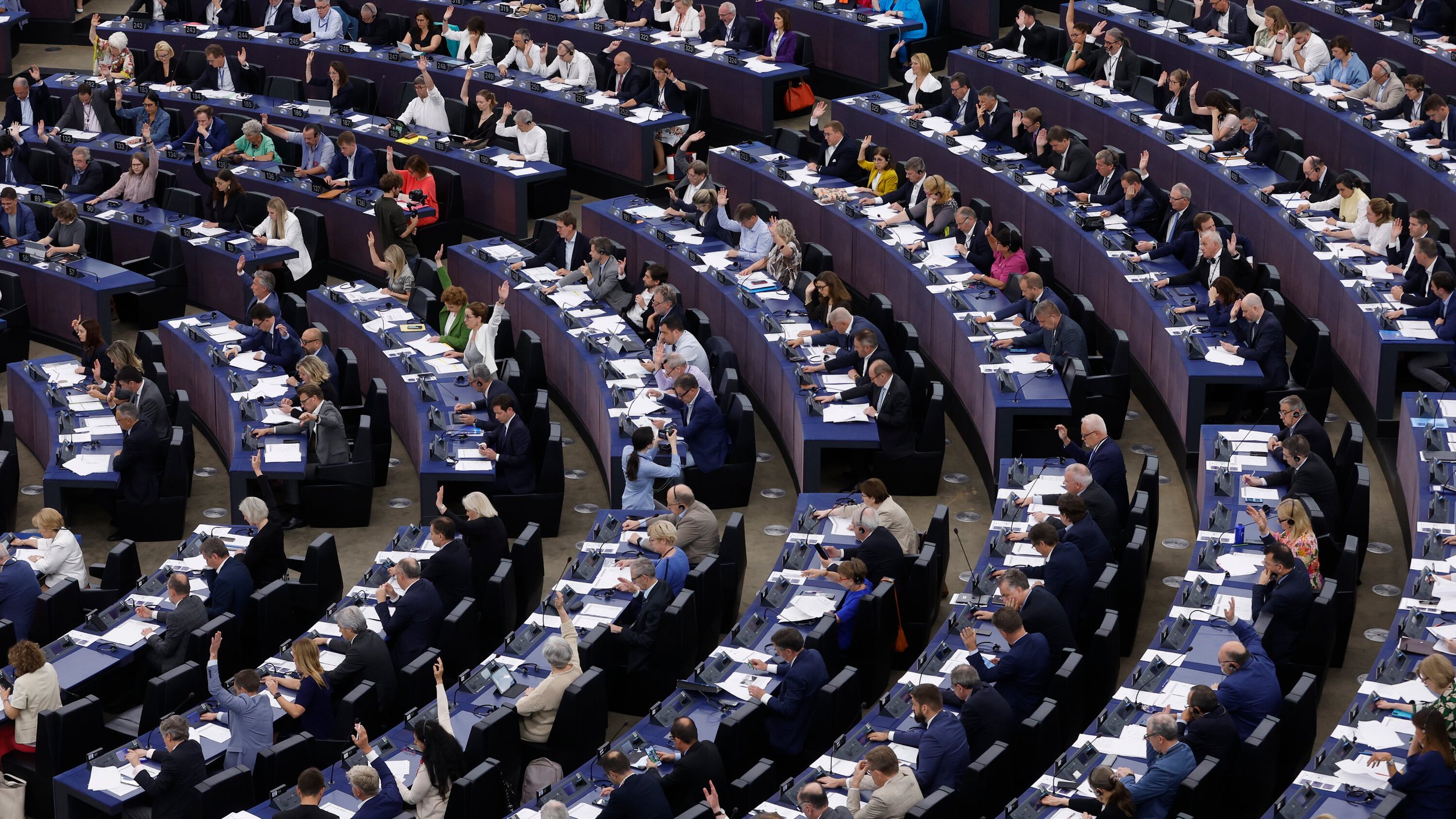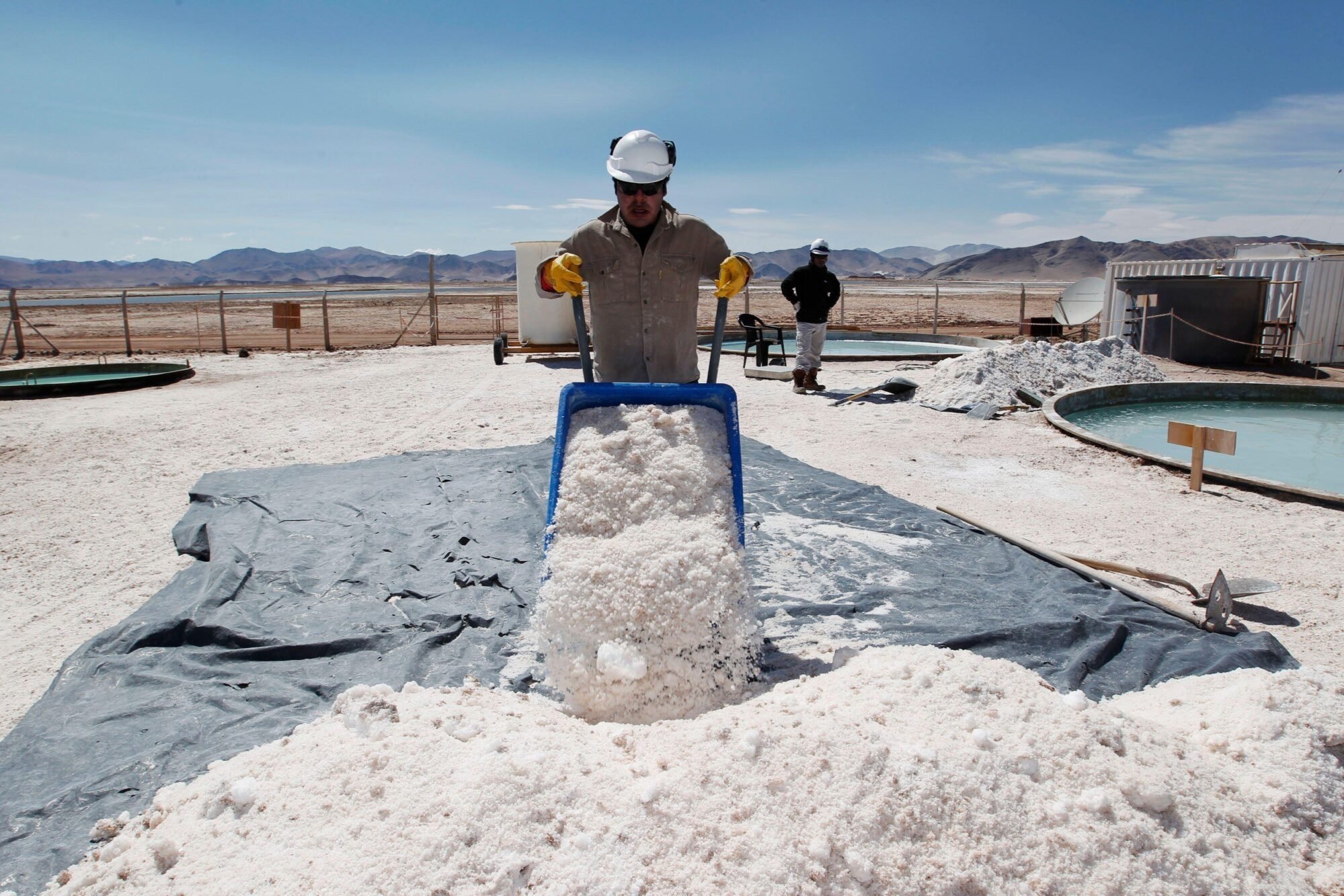The Legal Public Square
The Role of Antitrust Enforcement in Modern Merger Policy: Antitrust Law Protects Consumers in the Face of Big Company Mergers
Jiya Desai
December 2025
Antitrust law serves as the backbone of market competition in the United States, ensuring that corporate consolidation does not override consumer rights. In an economy increasingly controlled by a small number of major corporations, these laws maintain a critical mechanism that balances growth and accountability, especially in a predatory market. Read Here.
Filling the Gap: Ecocide and the Structural Limits of the Rome Statute
Nilsu Suslu
December 2025
In 2024, a coalition of small island nations including Vanuatu, Tuvalu, Fiji, Samoa, and the Maldives stood before the International Criminal Court (ICC) and proposed that the Court recognize ecocide as a new international crime. These states argue that the existing framework of international law is not equipped for the type of harm they face. These developments illustrate not only ecological decline but the limits of a system that treats environmental loss as either a domestic issue or an unfortunate byproduct of development. Ecocide enters the conversation as a response not to a single disaster but to a structural absence. Read Here.
Censorship or Safety: Discussing the Implications of the Kids Online Safety Act
Joann Fetner
December 2025
Given the prevalence of harmful content in a space that plays a central role in the lives of adolescents, many have begun to question the lasting impact of social media on rising generations. This raises a critical question: should there be restrictions on social media use by adolescents? If so, to what extent should regulations be implemented? Read Here.
Screening For Survival: A Legal Framework For Addressing Anorexia Nervosa
Michelle Mikhels
December 2025
For nearly 60 years, anorexia nervosa (AN) has been the mental illness with the highest mortality rate in the country. A 2011 meta-analysis of 36 studies from 1966 to 2010 and a 2025 meta-analysis of 49 studies from 2010 to 2024 found that anorexia nervosa has the highest mortality rates compared to other mental illnesses. Yet, despite the severity of AN, federal law contains no mandated prevention or screening requirements for eating disorders in schools. Therefore, Congress should enact a structural, school-based prevention mandate for anorexia nervosa. Read Here.
A Repeating of History: Air Traffic Controllers and Airspace Safety During the Government Shutdown
Paige Ablon
November 2025
After 35 days of the first government shutdown under the Trump administration in 2019, many air traffic controllers stayed home, halting travel at LaGuardia Airport. In response, President Trump signed a “short-term spending bill, effectively ending the government shutdown.” Comparatively, the current strain on U.S. air travel, due to the government shutdown that began on October 1, is approaching the conditions that led to the end of the 2019 shutdown. So now we ask, can air traffic controllers do it again? Read Here.
The Long Arm of American Law: Why Extraterritorial Enforcement Undermines Global Trust
Justin Li
November 2025
In the last fifty years, the United States has extended its legal power far beyond its borders. What began as the domestic principle of “minimum contact” became a global web of enforcement that affected companies, banks, and individuals worldwide. This global limitation on trade, often referred to as extraterritorial jurisdiction, is now one of the most contested issues in international law. Read Here.
It’s Not Criminal, It’s Civil: The Treatment of Undocumented Immigrants by the Trump Administration
Patrisia Baroud
November 2025
From the beginning of Donald Trump’s political career, he has worked to dehumanize immigrants, both documented and undocumented. Throughout his 2024 campaign, he made multiple disparaging comments about American immigrant communities, going as far as claiming that Haitian immigrants were eating “cats and dogs” and South American immigrants were drug dealers, turning immigrants into invasive monsters in the eyes of his audience. Read Here.
Democracy, Data, and Dominance: The Antitrust Revival in the Age of Big Tech
Gabriella Sawa
November 2025
The American antitrust movement rests on a broad moral, economic, and political foundation: competitive markets outperform monopolized ones by fostering lower prices, higher-quality products, and greater innovation. The Gilded Age brought extreme inequality as the consolidation of industrial power produced a national income distribution in which the top one percent claimed roughly eight percent of total earnings. Read Here.
Cruel, but Far From Unusual: Reassessing Solitary Confinement Through the Eighth Amendment
Abby Lin
November 2025
Across the United States, the use of solitary confinement within the penal system is far from unusual, but is it cruel? Solitary confinement is a disciplinary method where individuals are forced into isolation following a behavioral infraction or a safety concern. The process varies between jurisdictions but typically involves confinement in a cell isolated from human contact for twenty-two hours or more a day. Read Here.
Legal Protections for Stakeholders in Abortion Care:
An Innovative Approach to Bolstering
Shield
Laws
| Graylin Lucas
October 2025
In the wake of Dobbs v. Jackson Women’s Health Organization— the 2022 Supreme Court decision that reversed Roe v. Wade returned the authority to regulate abortion to the states— reproductive healthcare providers are facing legal threats for providing state protected healthcare to Americans in other more vulnerable areas. By extending the protections afforded to healthcare providers to attorneys—another group of stakeholders at risk of professional repercussions—the legislation introduces a new tactic for pro-choice states seeking to defend their residents from out-of-state regulation. Read Here.
Death of Press:
A Discourse on the Recent Violations of Freedom of Speech in the World's Largest
Democracy
| Sakshi Vimal and Kislay Parashar
October 2025
The heightened tensions between the two nuclear powers, India and Pakistan, nearly escalated into a full-scale war in May 2025. Yet the real war had raged within, when its voices were silenced and dissent was treated as a threat to national security. The core question emanating from the recent India-Pakistan conflict is whether the right to dissent and freedom of the press can truly exist within the constraints of the present political system in India. Read Here.
Washington’s Watchdog:
Russell Vought and the Politics of Money
| Ruhan Ganpath
October 2025
Nothing about the political career of Donald Trump has been conventional. He won the 2016 presidency as the first candidate to ever do so with zero political or military experience, ran a whirlwind campaign amidst a pandemic in a losing effort in 2020, and won again in 2024 en route to becoming just the second candidate to ever win two non-consecutive terms in office. There has been no shortage of wacky headlines from the Donald’s nine-year-and-counting foray into public office. Read Here.
Unchecked Authority: Trump’s Use of the Supreme Court Shadow Docket
| Haley Tran
October 2025
Since President Trump's return to office, there has been an expansion of executive power. Aiding this development is the use of the Supreme Court emergency docket, sometimes referred to as the “shadow docket” or the “interim docket. Although it has rarely been used in the past, the Trump administration has relied on the emergency docket with unprecedented frequency and scope, with the Supreme Court often siding with the administration. Read Here.
The Post-it Note Problem: How Informality Fuels the Eviction Crisis
| Michelle Mikhels
October 2025
Millions of people in the United States face eviction each year. According to The Eviction Lab, an average of “7.6 million individuals were threatened with eviction every year between 2007 and 2016.” The number of children facing the threat of eviction in the U.S. each year is even more alarming as nearly three million children face eviction each year. Read Here
The Unconstitutionality of Residential Zoning: Why Euclid v. Ambler Was Wrongly Decided
| Martin McPhee
May 2025
The Supreme Court decided Village of Euclid v. Ambler Realty in 1926, affirming the constitutionality of residential zoning and greenlighting the past century of urban planning. The ordinance faced a constitutional challenge, leading the Supreme Court to rule that zoning is a valid use of states’ constitutionally assigned police power. Read Here
Beyond Empowerment: The Case for a Veterans AI Access and Equity Act
| Michelle Mikhels
May 2025
The U.S. Department of Veterans Affairs (VA) launched an AI initiative which they claim will improve healthcare outcomes for veterans and streamline access to veterans’ benefits by using AI to enhance efficiency and prevent fraud. While these actions are important, there is a mismatch between the VA’s goals and the daily needs of U.S. veterans. Read Here
Kilmar Abrego Garcia: The First Legal Test
| Brian Delagdo
May 2025
The much-anticipated constitutional crisis is no longer theoretical or incoming; it is here. This crisis, spurred by an erosion of checks and balances, is marked by an administration that is defiant of court orders and employs measures reminiscent of draconian ones. Namely, the wrongful deportation of Kilmar Abrego Garcia, a Salvadoran national who has subsequently been imprisoned in El Salvador, exemplifies this present ignorance. Read Here
Failure to Protect Laws: An Oversight of the Intersectional Realities of Abuse
| Lily Mobraaten
May 2025
The late 1800s and early 1900s brought about shifts in attitudes toward both domestic violence and child abuse. The formal child protection movement originated in 1875 with the formation of the New York Society for the Prevention of Cruelty to Children. Soon after, the Battered Women’s movement took root in the social movements of the early twentieth century. Read Here
Surveys Say We Need Legal Action: Addressing NYC’s Adolescent Mental Health Crisis
| Michelle Mikhels
May 2025
Recent Youth Risk Behavior Survey data reveals an alarming trend among New York City (NYC) high school students: rates of suicidal ideation and suicide attempts are rising considerably and surpassing national averages. From 2021 to 2023, the percentage of NYC high school students who “seriously considered attempting suicide” increased by 2.3%. Read Here
The New ‘Gold Card’ Program: A Challenge to Congressional Authority and Democracy in the United States
| Paige Ablon
May 2025
In his speech on March 4, President Donald Trump claimed that “true democracy” would be restored in America with the implementation of his new immigration program, the ‘gold card.’ If the ‘gold card’ is enacted without Congressional approval, Constitutional authority and the commitment to checks and balances will be abrogated. Read Here
“Now It’s Ours”: The Unconstitutionality of Civil Asset Forfeiture
| Abby Lin
May 2025
A police car drives by. It’s a Cadillac Escalade stenciled with the statement, “THIS USED TO BE A DRUG DEALER’S CAR, NOW IT’S OURS.” In light of insufficient safeguards to protect innocent individuals from unjust seizures, civil asset forfeiture should be abolished because it violates the Fourth, Eighth, and Fourteenth Amendments, as well as due process rights. Read Here
Addressing Gender Equality: Prison Feminine Hygiene Reform
| Michelle Mikhels
May 2024
A commonly overlooked example of gender inequality is that which occurs in New York state prisons, primarily with limited feminine hygiene access. To comply with the US Constitution, new gender-responsive regulations must be instituted and enforced to both prevent unsafe and unfair conditions for incarcerated women and reform training programs for correctional officers. Read Here
Navigating the First Amendment in the Digital Age: A Discourse on Freedom of Speech and Social Media
| Abigail Harrison
May 2024
The rise of social media has sparked a nationwide debate over the boundaries of our First Amendment right to freedom of speech. As this liberty is increasingly exercised online, many are questioning if there should be limits, and if so, where they should be drawn. Read Here
Juvenile Justice: Recognizing the Difference Between Juvenile and Adult Criminal Courts
| Abby Lin
May 2024
The concept of adulthood is not merely sociological. In American society, it also holds legal relevance. The law explicitly recognizes the difference between a minor and an adult. Despite this acknowledgment, it is not uncommon for a juvenile to be tried as an adult in the criminal justice system. Read Here
Olmstead v. L.C. & the US’ Delayed Shift to Community-Based Services for People with Disabilities
| Lauren Fakhoury
May 2024
Tracking the impact of the Supreme Court in Olmstead v. L.C. and resources available to people with disabilities. Read Here
The First Amendment Implications of the No AI FRAUD ACT: An Overreaction to New Technologies
| Ethan Du
May 2024
As Artificial Intelligence becomes a mainstream tool in nearly every industry, Congress has attempted to regulate it through the No AI FRAUD Act, creating many First Amendment concerns. Can officials regulate AI without smothering innovation and violating the Constitution? Read Here
Removing the Price Tag on Justice: The Abolishment of Cash Bail
| Abby Lin
January 2024
In recent years, advocates and state governments have moved to abolish cash bail for specific crimes. While the policy debate continues across the country, it’s worth looking at what the Constitution has to say on the matter. Read Here
The EU AI Act: A Beacon Amid the Chaos of AI Innovation
| Darren Kim
January 2024
The rise of AI has caused many to call for substantial regulation. In a world where technological advancement regularly outpaces legislative efforts, what framework has the EU put forth to regulate this new industry without stifling it? Read Here
Originalism or Safety?
Analyzing Constitutional Interpretations of The Right to Bear Arms
| Gabriella Sawa
January 2024
How has constitutional interpretation changed in cases surrounding gun rights, and what do these changes mean for United States v. Rahimi and the rights of domestic abusers? Read Here
Empowering NYC Veterans: Using Artificial Intelligence for a Brighter Future
| Michelle Mikhels
January 2024
Despite efforts to support veterans during post-deployment, hundreds of thousands of veterans in New York City alone live in households with earnings insufficient to cover basic necessities… Read Here
Supremacy or Sovereignty? The Legal Struggle Between the Federal Government and the Lone Star State
| Neya Kidambi
May 2023
Recent legal battles between Texas and the federal government have brought the supremacy clause and our system of federalism to the forefront of legal debate. Does Texas have the right or power to control national immigration policy within its state borders? Read Here
The Case for Self-Determination: Kuril Islands and the Ainu People
| William Moon
May 2023
There is a hopeful thread throughout the history of indigenous people fighting for self-determination. Such victories could be the roadmap to freedom for the Ainu people, who are struggling to find independence from Japan and Russia. Read Here
A Case for the Expansion of the First Step Act of 2018
| Lily Mobraaten
May 2023
The First Step Act of 2018 was a strong “first step” in the right direction of reducing mass incarceration. But its strong policy solutions are restricted from too many. More incarcerated persons need access to remedy options like the First Step Act. Read Here
Supreme Courts: The Legislature’s New Initiative
A dive into recent State Legislature attempts to influence the Courts
| Mia Bond
May 2023
Balancing legislative power with judicial oversight has always been a hallmark of our checks and balances system of governance. In recent history, this relationship has taken a turn as legislatures nationwide seek to exert their political wills on independent courts. Read Here
The Lithium Dilemma: Balancing Economic Development, Indigenous Rights, and Sovereignty in Argentina
| Nicole Lu
January 2023
The world stands on the cusp of a clean energy revolution, and lithium has emerged as a critical resource in powering this transition. Argentina, endowed with a multitude of lithium reserves, finds itself in a favorable position in the global race toward cleaner energy sources. Read Here
The Framework for an Unelected Speaker
| Fabian T. Ardila
January 2023
The Constitutional and Political Basis on Which Donald Trump Could be Elected as Speaker of the House, Putting Him Only Two Steps Away from the Presidency. Read Here
The Acquisition of Extraplanetary Property
| Fabian T. Ardila
January 2023
The UN's Outer Space Treaty fails to create a framework for enforcing the treaty, which leaves the international community vulnerable to conflict over extraplanetary resources such as HE-3 and geostationary orbits. Read Here
The Anti-Leaflet Law
| Haan Choi
January 2023
The controversial amendment epitomizes the dilemma of the trade-off between free expression and national security, but the problem is never too black and white. Could the South Korean government do better to preserve both? Read Here
The Matter of Standing in Student Loan Forgiveness
| Neya Kidambi
January 2023
Student loan forgiveness has been a highly contentious and anticipated topic, in light of the Supreme Court’s recent decisions. The concept of loan forgiveness highlights [calls attention to?] the fundamental legal concept of standing, and its role in due process. Read Here
Judge Ketanji Brown Jackson and Abortion Law: Overarching Impacts
| Uma Upamaka
May 2022
The amount of influence that the political inclination of the Supreme Court has upon the zeitgeist cannot be overstated. The opinion of a nation can be wholly considered, after all, by appraising that of the highest court in the nation. Read Here
COVID-19 Policy as a 'Liability Shield' at NYU
| Jack Li
May 2022
With higher-education institutions across the nation returning to in-person learning, college and university administrators are becoming anxious to avoid potential liability. Read Here
Reactions to Amy Coney Barrett's Originalist Philosophy on the New Supreme Court of the United States
| Hanna Lee
May 2022
Read about both the left and right opinions behind Amy Coney Barrett’s originalist judicial philosophy and the legal implications behind the Supreme Court’s interpretation of constitutional human rights with a 6-3 Republican majority. Read Here
An Inductive Approach to Marbury v. Madison
| Ashwath Subramanian
May 2022
Chief Justice John Marshall precise and process-driven logic leaves no foothold for detractors searching for breaks in reasoning, while remaining accessible to the layman; Marshall’s technique in Marbury was more than worthy of the pervasive legacy that it left behind. Read Here
The Supreme Court Has Always Been Political
| Emily Dai
January 2022
One of the fiercest defenders over the image of the apolitical Court is Chief Justice Roberts. However, closer inspection reveals the dire truth: the Court has never been neutral. Read Here
Justice Revoked: The Failure of the JEP to Restore Peace in Colombia
| Pablo Vargas
January 2022
Although achieving peace in a war-torn country is a universally lauded goal, how much are we willing to sacrifice a country’s future to amend for its past grievances? Read Here














































